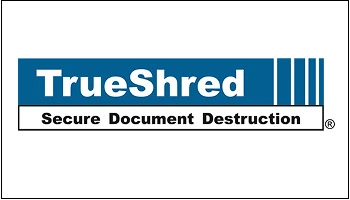The Fair and Accurate Credit Transactions Act of 2003 was passed in order to “reduce the risk of consumer fraud and related harms, including identity theft, created by improper disposal of consumer information.” FACTA did not mandate methods of disposal, but did set guidelines for “reasonable measures” for disposal:
- Burning, pulverizing, or shredding of physical documents
- Erasing or physically destroying all electronic media
- Engaging a third party contract for the purpose of information destruction
Who Must Comply with FACTA?
FACTA applies to businesses and organizations that deal with information included in consumer reports. According to the Federal Trade Commission, this includes:
“…people and both large and small organizations that use consumer reports, including: consumer reporting companies; lenders; insurers; employers; landlords; government agencies; mortgage brokers, car dealers; attorneys; private investigators; debt collectors; individuals who pull consumer reports on prospective home employees, such as nannies or contractors; and entities that maintain information in consumer reports as part of their role as a service provider to other organizations covered by the Rule.”
What Information Does FACTA Protect?
FACTA was designed to protect the privacy of personal information included in consumer reports. So, what kind of information is typically included in consumer reports?
- Personal information – Social security numbers, addresses, employment history, and other identifying data about a person.
- Credit history – Any information that reflects on an individual’s creditworthiness, including number of open and closed accounts, accounts in good standing and/or past due, and more.
- Account details – Detailed data on all of the accounts on a person’s record; typically includes account name, number, balance, status, and history.
- Inquiries – The number of times an individual’s credit report has been requested.
- Collections – Any accounts that have been turned over to a collections agency, liens, wage garnishments, and delinquent accounts.
What Are the Penalties for FACTA Non-Compliance?
Both federal and state penalties may apply to FACTA violations.
- Federal government FACTA penalties can be up to $2,500 per violation
- State FACTA penalties can be up to $1,000 per violation
This is why it is critical for any company that deals with consumer information to have a policy in place to prevent FACTA violations.
Complying with FACTA
Regularly scheduled document destruction should be part of any secure FACTA compliance system. TrueShred provides secure shredding services for title companies, real estate agencies, and financial and accounting firms throughout DC, Maryland, and Virginia.
Whether you require regularly scheduled title or real estate company shredding service, financial or accounting firm shredding service, or on-call shredding service, we have a customized solution for you. Contact us for a free estimate today.




